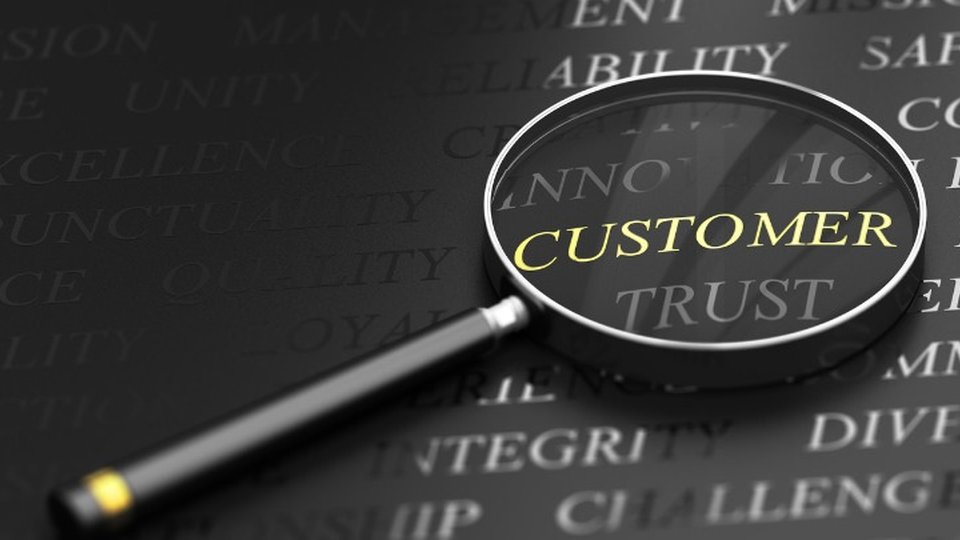Customer Service
State of digital trust: How the virtual economy is changing consumer behavior
Todd McKinnon, Okta CEO and co-founder, explains why retailers, now a year into the pandemic, need to expand and adapt practices to prioritize trust. To remain successful, organizations need to make trust a cornerstone of their employee and customer experiences.

March 15, 2021 by Todd McKinnon
Over the past year, people around the world have moved online and now conduct most of their daily lives digitally — from classes to grocery shopping; from doctor appointments to holiday celebrations. These digital shifts have required increased trust from all of us. Employees and employers have had to trust each other to work securely and productively from new locations (sometimes during different working hours), consumers have had to trust businesses to keep their personal data safe, and we've had to trust each other to get through the pandemic safely.
Okta has released its State of Digital Trust report, which highlights how the shift to a digital world impacts trust in brands. We worked with YouGov to survey more than 15,000 office workers around the world and learn more about their trust in the digital economy.
Here's what we found:
Reliability and security are key
Two main factors impact how much (or little) people trust a digital brand: reliability and security. Our survey found that 32% of Americans consider service reliability — meaning products are as expected, items arriving on time and in good condition — to be the most important factor for determining their trust in a digital brand, and globally, respondents share that sentiment. How a brand handles its customers' data also plays an important role in customer trust: 42% of Americans and 47% of UK respondents say that a brand mishandling or selling data would cause them to lose trust in that brand, and many respondents around the world agree.
We trust the brands that help us work
Over the past year, the dramatic shift to remote work has introduced many people to collaboration tools — like Slack, Zoom, and Figma (one of the fastest-growing apps in our annual Businesses At Work report) — to stay productive and connected to colleagues while dispersed. Our survey respondents think these tools are trustworthy and secure. 22% of Americans say websites they use for work, including search engines (like Google) are the most secure, while 13% select communication apps used for work (Zoom, Slack) as the most secure. In contrast, only 2% say the same for emerging social apps like TikTok.
Trust is big business
Loss of consumer trust can wreak havoc on a brand's reputation and finances. Our report found that trust in our digital world directly correlates to consumer purchasing decisions. 75% of US respondents say they are unlikely to purchase from a digital brand they don't trust. If a brand misuses data or experiences a data breach, 47% of Americans say they will permanently stop using the company's services.
This trend only increases with age; 89% of 55+ year-olds in the US say they are unlikely to buy something from a brand they don't trust, compared to 53% of 18-24 year-olds. Americans are also wary of brands that require unwieldy sign-up processes. 74% say they'd be likely to abandon the sign-up process for a website or app if it had a time-consuming onboarding process and required lots of personal information and security details.
Digital trust in a post-pandemic world
The pandemic will eventually come to an end, but some new digital habits are here to stay. 58% of US respondents say their online spending has increased since COVID hit, and 63% say it will remain the same or continue to increase post-pandemic. 78% of Americans also believe organizations will continue to offer their services online either instead of or in addition to face-to-face services post-pandemic.
Of course, some experiences have more staying power than others. For example, 73% of US consumers had never seen the doctor virtually before COVID, but that fell to only 48% during the pandemic. Now, only 40% say they'll exclusively stick to in-person appointments post-pandemic. Once things are back to normal (whatever that means!), 67% of Americans also plan to continue using video conferencing apps to connect with friends and family at least once per month. On the other hand, consumers aren't as attached to experiences like online exercise classes and virtual leisure activities.
What's next?
Our personal and professional lives are largely online today, and that trend will continue after the pandemic. Consumers are hesitant to conduct business with companies that misuse or lose their data, which means trust (or lack of trust) has a direct impact on a digital brand's bottom line. For digital brands, building trust with consumers is critical and will need to be an ongoing priority in the years ahead.
Nearly a year into the pandemic, many companies have successfully transitioned to remote work and have found innovative ways to connect with their customers. As the world continues to change, businesses need to expand and adapt their practices to prioritize trust. The digital era is constantly evolving, but it's here to stay. To remain successful, organizations need to make trust a cornerstone of their employee and customer experiences.
Todd McKinnon is CEO and co-founder of Okta
About Todd McKinnon
Todd’s experience as a leader and technology visionary spans more than 25 years, with deep roots in enterprise software and cloud transformation. Prior to Okta, he led engineering at Salesforce.com, where he grew the team from 15 people to more than 250, and the service from two million daily transactions to more than 150 million. Todd started his career at PeopleSoft, where he held a number of engineering and leadership roles throughout his 8-year tenure.
Todd earned his bachelor’s degree in management and information systems from Brigham Young University and his master’s in computer science from Cal Poly San Luis Obispo. A Bay Area native, Todd is an advisor to Family House and an advocate for equality and inclusion. He is a husband and father, an exercise addict, and a mountain bike enthusiast.
 ChatGPT
ChatGPT Grok
Grok Perplexity
Perplexity Claude
Claude




